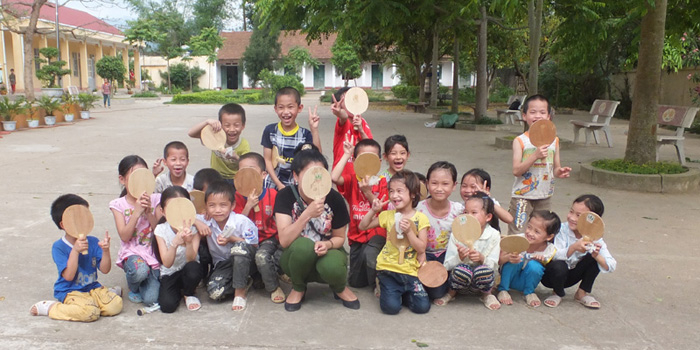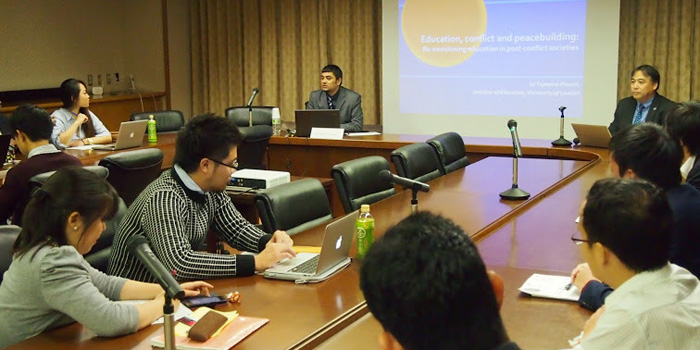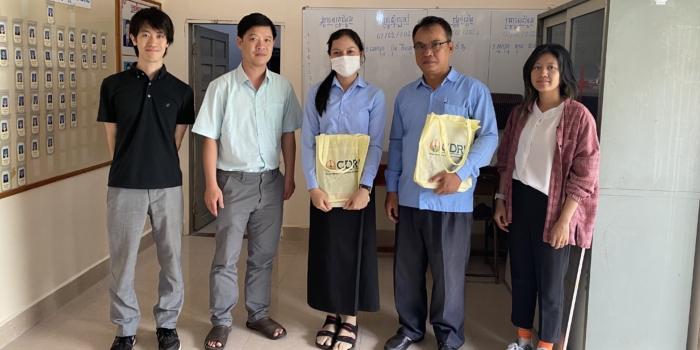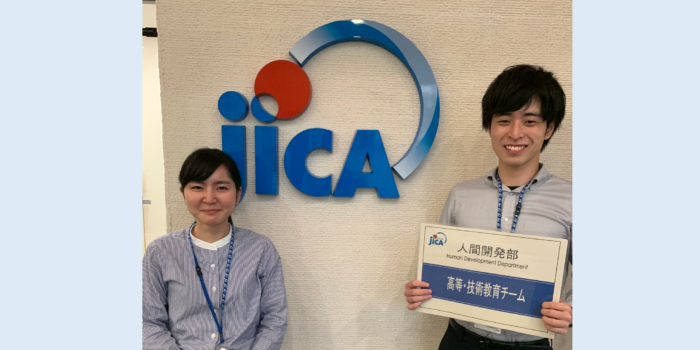I conducted field study in Vietnam for three weeks from April 9 to 27, 2014 in order to develop my knowledge about working children and the reality of child work and schooling, which is my dissertation topic. I had two specific objectives for this field study.The firstwasto clarifythe reasonswhy children work and investigate their child-time allocations by doing depth-interviews with working children in rural and urban areas.The second was to investigatethe policy implementations for child labor and out-of-school and disadvantaged children throughmeeting with officers of the ILO, Ministry of Labour, Invalids and Social Affairs, Ministry of Education and Training, UNICEF, and NGOs that support working children to attend school.
I interviewed 23 working children/adolescents who had started to work when they were around 14 years old,in Hanoi, Thanh Hoa, and Lan Song provinces. I examined their types of work, main cause of work, family background, and their child-time allocations. Through these interviews, I found that the main reasons for children working are household financial problems resulting from their parents’ divorce, parent’s disease or death, and parents having long leave in other provinces or countries. In addition to financial problems, low academic interest is a big cause of child work. In addition to the reasons of child work, I could find differences in the circumstances of working children between urban and rural areas. In urban areas, most working children have come from other provinces because their families had financial problems in their own hometown. Moreover, there are internet cafes and game centers where children can play computer games late into the night, and some children tend to be not interested in studying at school and work more to earn money to play in these places. These children also face risks of getting involved in drug problems or being trafficked. In rural areas, however, children work within their own households. Children are usually engaged in agricultural work. They need to take care of their livestock and grow rice or vegetables instead of parents who have died or work in other countries.
I also conducted an interview with Ms. Nguyen Mai Oanh, National Programme Coordinator (NPC) of the Child Labour Project ILO Office and Ms. Do Thi Thu Huong, Project assistant/interpreter, Vietnam-ILO Industrial Relations Project. I could learn from them about the detailed definition of child labor and child work in Vietnamese context. They also gave me precious information about the current situation of child labor and inspection activity, which is the way to find households and companies who hire children illegally. Besides, I gained some valuable documents about the Labour Code and evaluation reports. In addition to policy about child labor, I could gain a better understanding of the support system for disadvantaged children and the current ongoing study about school out of children by meeting with Mr. Le Khanh Tuan, Deputy Director of the Planning and Finance Department at the Ministry of Education and Training,and with Ms.Le Thi Minh Chau, Education Specialist of UNICEF.
I am most grateful to Prof. Keiichi Ogawa for providing me with a wonderful opportunity and financial support. He has helped me in my work in this field since I started to study in GSICS. I also would like to express my sincere gratitude to Prof. Yoshihisa Saito and his friends, Ms.Nguyen Hoa, Ms. Hien, and Mr. Nguyen Son,for their full support and helping me so much during my stay in Hanoi. I couldn’t have completed this research without them and appreciate the opportunity of having worked with them.Finally, I would like to thank Prof. Yasuharu Shimamura for giving me useful suggestions and comments for this study and Ms. Truong Thu Ha for advising me and also sharing a great time with me in Hanoi.
Related






